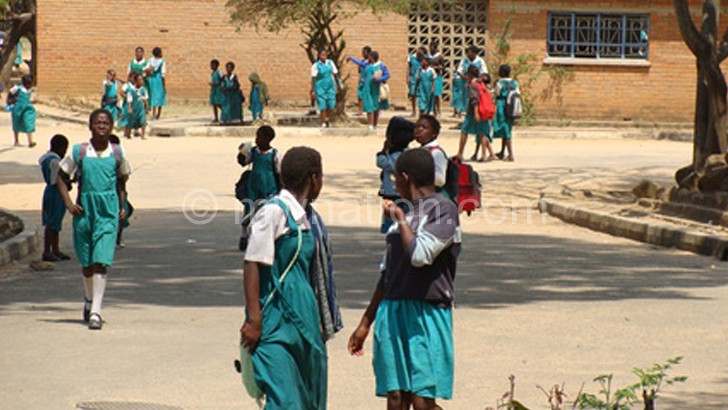Chiefs’ fight for girls’ rights
During her chieftaincy, Traditional Authority (T/A) Kachindamoto of Dedza has dealt with many issues in her community. But very few strike a personal chord like the story of this 13-year-old girl.
Kachindamoto recalls one afternoon, as she was doing her usual rounds in her village, when she noticed the girlchild grapple with an infant. The baby was crying incessantly and the girl seemed not to know what to do.
“Go and give the baby back to its mother,” Kachindamoto suggested.

She was shocked when, in response, the girl said the baby was hers, and that the father was a 14-year-old boy who, at that time, was playing football with friends.
Another girl, Sellina Mbale, 16, is currently in Form Four. She returned to school after giving birth to a baby boy, who is now three. Mbale got married after falling pregnant, but the marriage was annulled by her group village head so she could return to school.
Kachindamoto has taken the bull by its horns when it comes to ending child marriages.
According to her, the girl child must be protected by all means.
To ensure that her community is on the same page with her, Kachindamoto called for a meeting where all village heads were present.
“I was least amused when I saw that 13-year-old breast feeding. I cried within myself, wondering what kind of future generation we are raising if children that young are having children,” she says of her motivation behind the meeting.
During the meeting, the traditional leaders came up with by-laws to govern their areas.
“Not many people liked some of my ideas, but sometimes a chief has to do what is best to save the community. So, using my authority as T/A, I managed to persuade them,” says Kachindamoto.
The traditional leader says some of the by-laws drawn and agreed upon included an immediate annulment of all marriages of persons aged below 18 years regardless of how long the couple has been married. She also stopped all activities that last up to eight in the evening, saying they are fuelling immoral behaviour.
“After the by-laws, I was getting calls where some people were complaining that I was coming up with such stringent laws because I only have sons,” she says.
In addition, Kachindamoto, who looks after 151 villages and 18 registered Group Village Heads in the district, went on an awareness campaign under the Gender Equality and Women Empowerment Project, (Gewe) where she urged chiefs and church leaders to be on the lookout for any young teen marriages. To those who did not oblige, their powers were stripped off.
Three chiefs, GHV Galuanenenji, Chatewa and senior GVH Adrian from Bwanali Village were dethroned last September for their negligence in allowing teen marriages.
However, the three were reinstated last April after paying a fine of two goats and annulling the marriages.
In an interview, GVH Galuanenenji said when he allowed the 15-year-old school dropout to marry, he was not aware of the child’s age as she had lied.
Another chief, senior GVH Akakhome, also had his seniority removed after Kachindamoto found out what he had done.
“She stripped me off my position in the presence of all the members. It was very embarrassing because we thought she had called us for something important,” Akakhome said.
The two chiefs could not say whether they received bribes to allow the marriages.
“All I can say is that we were in the wrong and we were treated accordingly,” said GHV Galuanenenji.
According to Kachindamoto’s records, over 600 teen marriages have been broken.
Women’s Legal Resources Centre (Wolrec) project officer Stella Issa says most girls are forced to marry by their parents due to poverty, or simply because the parents want grandchildren. Wolrec is an implementing partner for UNFPAs Gewe project in Dedza.
“Although most girls drop out of school to marry, such marriages do not last, leaving the girls even worse off than they were before. It is a pathetic situation which must be reversed.
“What UNFPA in this project, will have a positive impact and give direction to this country, otherwise a country flooded with children taking care of babies is doomed,” Issa says.
Government, in conjunction with UNFPA, is implementing the Gewe project in 13 districts across Malawi with the aim of empowering women through income generating activities and bringing equality between men and women.





